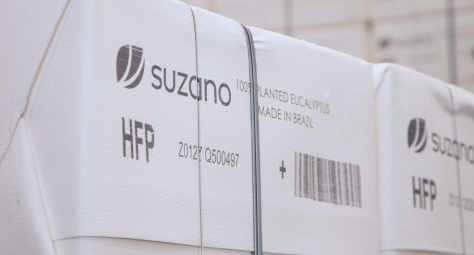sobre o que você deseja falar?


perguntas, sugestões ou problemas técnicos envolvendo a plataforma

informações sobre a empresa


For Suzano, maintaining the balance of ecosystem services grounded in the conservation and sustainable use of natural resources is crucial due to the strong link between its business model and the environment. As a nature-based enterprise, the eucalyptus grown for pulp production depends on these resources. Thus, fostering biodiversity conservation and restoring ecosystems not only aids society but also ensures the long-term viability of its operations.
Given the substantial expenses of creating and maintaining protected natural areas, the state drives these initiatives. Nevertheless, much of the world's land and biodiversity exist in private territories. Therefore, involving the private sector in establishing and safeguarding natural areas is crucial for global efforts to increase the number of conserved natural habitats.
According to data from the Brazilian Forestry Service (SFB)¹, 98% of Brazil's forest area is natural forest. In contrast, the remaining area comprises planted forests (approximately 9 million hectares planted with eucalyptus, pine, and other species intended for industrial purposes such as pulp and paper, wood panels, laminate flooring, energy production, and biomass).
On the global stage, Brazil distinguishes itself as the nation with the highest protection of natural areas through its planted tree sector. Currently, approximately 6 million hectares are dedicated to Permanent Preservation Areas (APPs), Legal Reserve Areas (RLs), and Private Natural Heritage Reserves (RPPNs)².
Suzano has been dedicated to identifying and conserving biodiversity in its operating areas and considers nature preservation an essential part of its business model. In this model, the company's plantation areas are interspersed with native forests and protected regions that have been managed to enhance biodiversity connections through mosaics, ecological corridors, and the restoration of degraded areas.
Suzano's protected areas include APPs and RLs, created and overseen following Brazilian Forestry Law No. 12,651/2012. Based on these areas' ecological, environmental, and social attributes, some areas may qualify as High Conservation Value Areas (HCVAs) and/or RPPNs. In these instances, they must be voluntarily established and managed according to the relevant certification standards and conservation area laws.
Suzano maintains and protects over 1 million hectares of native vegetation, representing 40% of its total area. Within this territory, the company has voluntarily identified 74 areas designated as HCVAs and 7 RPPNs (Category IV of the International Union for Conservation of Nature, IUCN), totaling approximately 90,000 hectares deemed globally or nationally significant for biodiversity conservation.
The management of Suzano's conservation areas aims to promote the maintenance, improvement, and sustainable use of biodiversity while protecting ecosystems, species, and genetic diversity and ensuring compliance with current legislation.
The company's biodiversity management is based on the Biodiversity Monitoring Plan, which outlines the general guidelines, procedures, and responsibilities for conserving its areas.
Since the 1990s, Suzano has focused on biodiversity monitoring in its protected areas, documenting over 4,000 species of fauna and flora. Among these, more than 400 are at risk of extinction, and 350 are endemic to three biomes: the Amazon, Cerrado, and Atlantic Forest.
Suzano has developed a dedicated Monitoring Plan for each forestry business unit within the designated High Conservation Value Areas (HCVAs). This plan specifies monitoring indicators, pinpoint potential risks to the attributes of high biodiversity value, and details the necessary protection measures. For Private Natural Heritage Reserves (RPPNs), customized management and protection strategies are implemented in line with the unique requirements and regulations governing these conservation areas.
External audits, the Forest Stewardship Council® (FSC®) standards, and the Program for the Endorsement of Forest Certification (PEFC®) monitor Suzano's environmental management and biodiversity practices.
Additionally, in areas where intervention is needed to restore ecological functions—due to prior cattle grazing and other activities by third parties—Suzano has developed a strategy and an Ecological Restoration Program. This program incorporates landscape planning and the integration of its stakeholders to help conserve biodiversity and create social benefits.
To counter biodiversity loss and positively affect nature, the company made a voluntary commitment in 2021 to connect half a million hectares of fragmented land—equivalent to four times the area of Rio de Janeiro—across the Cerrado, Atlantic Forest, and Amazon biomes by 2030 through ecological corridors. This initiative extends beyond the areas of Suzano's operations, aiming to enhance biodiversity value in the regions where the company operates.
The creation of ecological corridors connects isolated areas, facilitating animal movement, increasing vegetation cover, and consequently regenerating biodiversity. It is important to emphasize that the biodiversity commitment established by Suzano not only encompasses three of Brazil's six biomes but also considers the representativeness of the company's entire territorial expanse and influence. Its implementation will occur collaboratively with various stakeholders, in partnership with universities, and, above all, with local communities and the owners of the areas that will be connected.
Suzano pursues its goal through the Connect, Engage, and Protect pillars. Guided by these principles, the company will strategically implement biodiversity corridors, develop a Conservation Units (UCs) network, protect primate and palm species, and create business models that foster shared value and promote biodiversity. Additionally, Suzano will undertake measures to mitigate human-induced pressures on biodiversity. To learn more, visit “Commitment to Renew Life—Conserve Biodiversity.”
In pursuit of ongoing improvement in biodiversity management, Suzano launched an initiative in 2024 to enhance biodiversity measurement and leverage new technologies for data collection. Key initiatives include:
Moreover, in celebration of its centenary in 2024, Suzano has entered into a five-year collaboration with the IUCN. This partnership will allow the company to create its nature strategy and encourage key stakeholders to exchange knowledge and best practices, thereby promoting private initiatives focused on nature.
Note:
1. Brazilian Forest Service - National Forest Information System [SNIF (2020)] - map of Brazil's forests.
2. Brazilian Tree Industry (Ibá) - landscape management